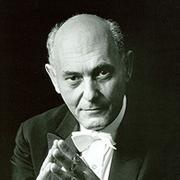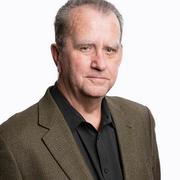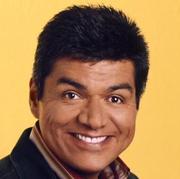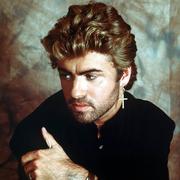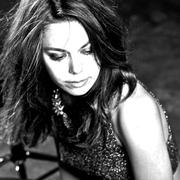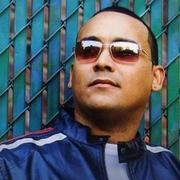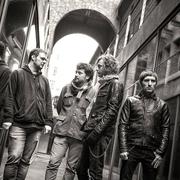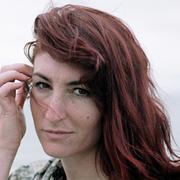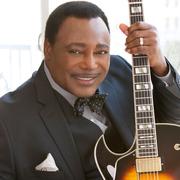Georg Solti
| 基本信息 | |||
|---|---|---|---|
| 姓名 | Georg Solti | 别名 | 暂无 |
| 国籍 | 匈牙利 | 出生地 | |
| 语言 | 性别 | 男 | |
| 生日 | 星座 | ||
| 身高 | 体重 | ||
小简介
左尔格·索尔蒂 (Georg Solti,1912-),英籍匈牙利指挥家。生于匈牙利布达佩斯。曾在李斯特音乐院从名师学习指挥、作曲与钢琴。1933-1939年任布达佩斯国立歌剧院专职指挥。1942年在日内瓦国际比赛中获得钢琴优胜。1946年被驻德美军聘为慕尼黑国立歌剧院的音乐指导,由于指挥贝多芬歌剧《费德里奥》成功而任拜仑歌剧院的指挥。曾加入德国籍。1953年始,先后在旧金山歌剧院及交响乐团、芝加哥抒情歌剧院、伦敦修道院花园歌剧院任指挥或音乐指导。他录制的歌剧《尼伯龙根的指环》使其名声大振。1971年获得爵士称号后入英国籍。从1969年始,他任美国芝加哥交响乐团的音乐指导兼常任指挥,还任过巴黎交响乐团与巴黎歌剧院、伦敦爱乐团的音乐指导及指挥。他早期的指挥虽给人以严谨拘束之感,但后期却逐渐转化为宏伟而具有魅力。 1991年索尔蒂选择《奥赛罗》威尔蒂曲作为告别CSO音乐总监的音乐会演出,这是他指挥现场演出实况录音的第一部歌剧,还是他指挥CSO录制的第100张唱片,也是CSO创建100周年,很有历史意义。 DECCA资料显示,索尔蒂是有史以来获得最多格林美奖的指挥家,自1962年以来共得32个奖项,加上其他唱片公司的7个奖项总共有39个奖项,这在现代指挥家中是无与伦比的。
Solti's interpretations held more than surface excitement. In conducting Beethoven, for example, he long held that the symphonies should be played with all their repeats to maintain their structural integrity, and he carefully rethought his approach to tempo, rhythm, and balance in those works toward the end of his life.
Solti began as a pianist, commencing his studies at age six and making his first public appearance at 12. When he was 13 he enrolled at Budapest's Franz Liszt Academy of Music, studying piano mainly with Dohnányi and, for a very short time, Bartók. He also took composition courses with Kodály. Although he aspired to be a concert pianist, upon graduating from the academy when he was 18 he took a job as répétiteur at the Budapest Opera. This practical opera experience enabled him to serve as an assistant at the Salzburg Festival to Bruno Walter in 1935 and Arturo Toscanini in 1936 and 1937. In 1938, he made his own conducting debut — by all accounts a brilliant performance — in a Budapest Opera production of Mozart's Le nozze di Figaro. He was Jewish, and rising anti-Semitism drove him to Switzerland in 1939, where he supported himself mainly as a concert pianist; he couldn't obtain a labor permit as a conductor. In 1942 he won the Concours International de Piano in Geneva, but it wasn't until 1944 that he had a serious chance to take up the baton again, in guest appearances with the Swiss Radio Orchestra.
In 1946, the American occupying forces invited Solti to conduct Fidelio at the Bavarian State Opera. Almost immediately Solti was appointed the company's general music director, a post he held until 1952; in that year he assumed the duties of general music director in Frankfurt, conducting opera productions and symphonic concerts. He also began making a name for himself in America, through appearances with the San Francisco Opera, Chicago Symphony, New York Philharmonic, and, in 1960, the Metropolitan Opera. He had made his London Covent Garden debut in 1959, and in 1961 the Royal Opera House engaged him as music director. Solti greatly improved the company's orchestral standards during his term, which lasted until 1971.
Solti made his most significant contribution during this period on LP, with the first stereo recording (for Decca) of Wagner's entire Ring cycle, completed in 1966. Even greater acclaim followed him as director of the Chicago Symphony, from 1969 to 1991. Yet Solti spent fairly little time in Chicago; as was becoming the norm, he held major simultaneous posts on two continents. He was music advisor to the Paris Opera 1971-1973, music director of the Orchestre de Paris 1972-1975 (a group he took to China in 1974), and principal conductor and artistic director of the London Philharmonic 1979-1983. European guest stints included conducting the Bayreuth Festival's Ring cycle in 1983, marking the 100th anniversary of Wagner's death.
In 1972 he became a British subject and received his official knighthood; under the circumstances, he also sanctioned the pronunciation of his first name as "George," although he retained the German spelling.
Solti was regarded as, above all, a superb Wagnerian. His performances and countless recordings of other nineteenth century German and Austrian music were also well-regarded, as were his Verdi and his frequent forays into such twentieth century repertory as Bartók, Shostakovich, and Stravinsky. Solti served as a strong advocate for such new works as Hans Werner Henze's Heliogabalus Imperator, David Del Tredici's Final Alice, and Michael Tippett's Symphony No. 4, all of which he premiered in Chicago.
 加载评论内容,请稍等......
加载评论内容,请稍等......
